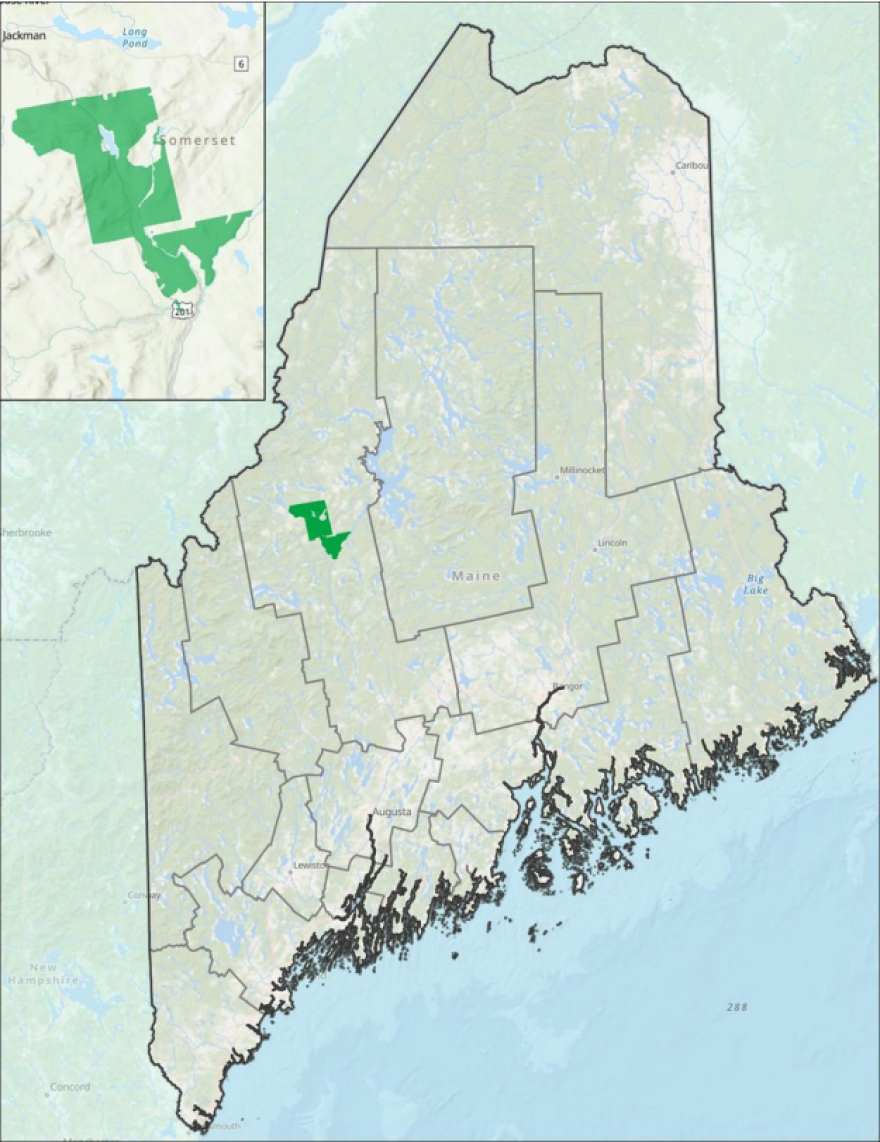A plan to conserve 50,000 acres of woodland near a new electric transmission line in Western Maine is facing opposition from environmental groups.
Critics say the proposal fails to meet state permit requirements designed to protect mature forest and wildlife habitat.
Avangrid, the parent company of electric utility Central Maine Power, was obligated to conserve land to compensate for destroying forest to build a new 51-mile transmission line from Quebec called the New England Clean Energy Connect.
"Within the permit there are pretty clear requirements to promote habitat connectivity and the conservation of mature forest areas and the plan submitted by NECEC falls pretty far short of these requirements," said Luke Frankel, Woods, Waters and Wildlife Director at the Natural Resources Council of Maine.
The council, along with Maine Audubon, Appalachian Mountain Club and Maine Council of Trout Unlimited filed 20 pages of comments on the plan, which is awaiting approval by the Maine Department of Environmental Protection.

The groups said Avangrid's plan did not incorporate enough mature forest, covered wildlife habitat fragmented by transmission corridors and a major roadway and would permit continued conventional timber harvesting.
Avangrid should have to significantly amend its proposal before it is approved by state regulators, the groups said.
"Taken all together we see this plan much more as business as usual in terms of forestry operations in the unorganized territories," Frankel said.
But Avangrid said that its plan fulfils a key requirement of the corridor permit and would create almost 450,000 acres of contiguously conserved land in Western Maine.
Avangrid spokesperson Jon Breed said that the groups criticizing its plan have opposed the corridor project for years. The transmission line, arranged to bring Quebec hydro power onto the New England electric grid, overcame lengthy political and legal battles but is nearly complete and supposed to be operational by the end of 2025.
The group's public opposition to the conservation plan "is a stark reminder that these organizations, who were once staunch champions of environmental progress, are increasingly standing in the way of critical energy infrastructure development," Breed said in a statement.
The Maine Bureau of Parks and Lands in a letter last month told the environmental protection department it had negotiated the terms of the agreement to comply with the state permit and was prepared to hold a perpetual conservation easement for the parcel.



